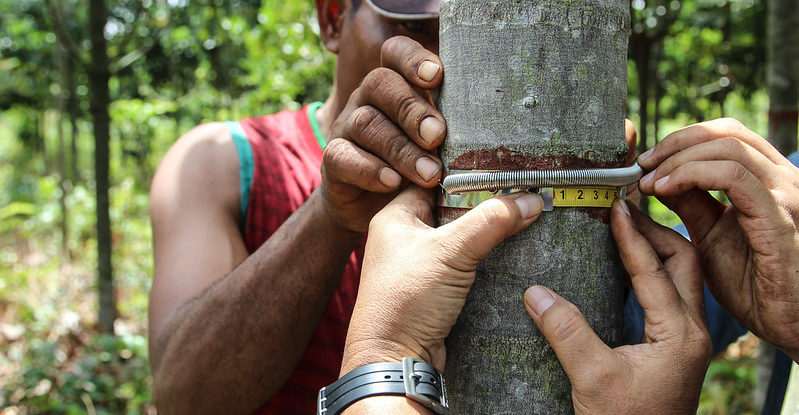
The coronavirus pandemic creates an opportunity to rethink generally accepted underperforming business-as-usual approaches to conservation, say more than 20 conservation and development professionals in an editorial published by environmental news provider Mongabay.
Current approaches should prioritize locally managed ecosystems, they state.
Initial efforts to address the environmental impacts and origins of COVID-19 are frequently oversimplified and ineffective, highlighting ongoing problems with conventional conservation initiatives, the scientists write, adding that often, these approaches narrow in on one part of a problem without considering situational factors at the community level.
For example, when addressing COVID-19 and other zoonotic diseases, it is tempting to blame the outbreak solely on wild meat sales at wet markets and then enforce strict regulations that ban those wet markets. However, this law-and-order approach threatens to further stigmatize marginalized communities who sell natural resources like bushmeat for their livelihoods.
“Reactionary legal enforcement also ignores systemic factors that drive the wildlife trade, like poverty and the demand for wildlife products from wealthy buyers,” said Terry Sunderland, a senior associate scientist with the Center for International Forestry Research (CIFOR) and professor in the Faculty of Forestry at Canada’s University of British Columbia.
“As a result, frontline communities are often unfairly blamed for conservation failures,” added Sunderland, who is also one of the authors of the Mongabay article.
In truth, the authors state, communities that depend on natural landscapes are often the most invested and capable land stewards; global land areas owned or occupied by Indigenous Peoples currently contain more than 80 percent of the world’s remaining biodiversity, they write, adding that most of these groups have centuries-old practices for living in harmony with their surroundings.
As such, these communities are a wellspring of valuable ecological knowledge that offers the best chance at achieving sustainable land management for the future.
Instead of reactionary conservation efforts, COVID-19 should encourage a shift toward more equitable and just systems, they write. Such systems would embrace local leaders as equal and meaningful partners in implementing sustainable practices that meet conservation targets and improve livelihoods.
The authors detail several steps and “key factors of success.”
We want you to share Forests News content, which is licensed under Creative Commons Attribution-NonCommercial-ShareAlike 4.0 International (CC BY-NC-SA 4.0). This means you are free to redistribute our material for non-commercial purposes. All we ask is that you give Forests News appropriate credit and link to the original Forests News content, indicate if changes were made, and distribute your contributions under the same Creative Commons license. You must notify Forests News if you repost, reprint or reuse our materials by contacting forestsnews@cifor-icraf.org.
Further reading
Q+A: Rollback of environmental protections continues during pandemic, expert says
COVID-19 pandemic: How nature steps in to refill empty forests when animals disappear
Terrain through the lens of the COVID-19 pandemic: Blueprint for a healthy planet
COVID-19-led ban on wild meat could take protein off the table for millions of forest dwellers
COVID wild meat ban deprives forest dwellers
Webinar: COVID-19 and what it means for wild meat
Importance of Indigenous Peoples’ lands for the conservation of Intact Forest Landscapes
No conservation silver lining to Ebola
Human activities link fruit bat presence to Ebola virus disease outbreaks
Coronavirus COVID-19 Global Cases
Wildlife and protected area management
Centers for Disease Control and Prevention: Zoonotic Diseases
Management of intact forestlands by Indigenous Peoples key to protecting climate
Mix up the diet with some wild meat
Sustainable wildlife management key as Guyana faces rapid economic change
Sustainable Wildlife Management Programme
John E. Fa on striking a balance between wildlife protection and use
Canadian caribou hunting ban highlights challenges of wildlife management